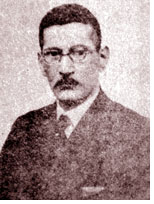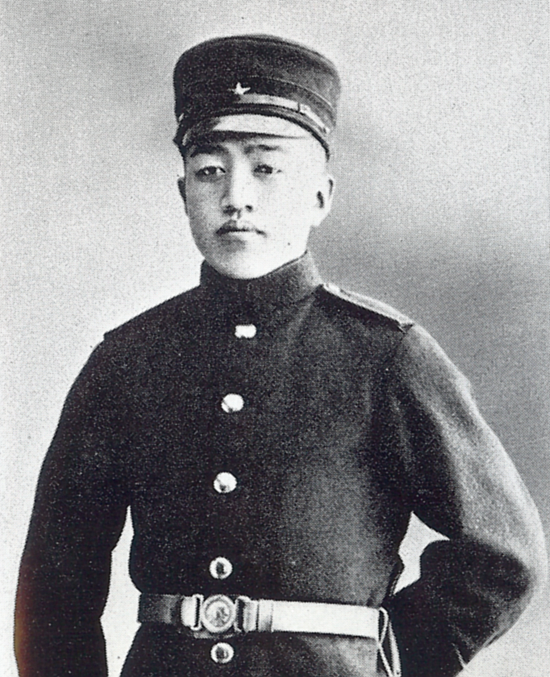|
The Tokyo Trial (film)
''The Tokyo Trial'' () is a Chinese film released in 2006. Plot This film was directed by Gao Qunshu and is about the International Military Tribunal for the Far East after Japan's surrender in World War II. The movie presents the trial from the point of view of the Chinese judge Mei Ju-ao. The director and his crew spent more than a year doing research to finish the script, which is based on historical data. It cost 18 million yuan (2.25 million U.S. dollars). This film hired actors from 11 countries, including mainland China, Hong Kong, Japan and other places, including actors such as Kenneth Tsang and Damian Lau. They recreated court scenes from the trial in Chinese, English and Japanese. It was shown in cinemas and around 100 universities across mainland China to mark the 75th anniversary of the start of Japan's invasion of China. Cast * Damian Lau as Mei Ju-ao, a judge * Ken Chu as Hsiao Nan * Kelly Lin as Yoshiko Wada * Kenneth Tsang as Xiang Zhejun * Eric Tsang as Masat ... [...More Info...] [...Related Items...] OR: [Wikipedia] [Google] [Baidu] |
Gao Qunshu
Gao Qunshu () is a Chinese film director. Filmography * '' The Tokyo Trial'' (2006) * ''Old Fish'' (2008) * '' The Message'' (2009) * '' Wind Blast'' (2010) * ''Beijing Blues'' (2012) * ''Crimes of Passion'' (2013) * ''The New Year's Eve of Old Lee'' (2016) * ''Run for Love ''Run for Love'' is a 2016 Chinese romance anthology film directed by Zhang Yibai, Guan Hu, Zhang Meng, Teng Huatao, and Gao Qunshu, featuring five love stories respectively in Japan, United States, Norway, Turkey and Saipan. It was released i ...'' (2016) References External links * Chinese film directors Living people 1966 births {{China-film-director-stub ... [...More Info...] [...Related Items...] OR: [Wikipedia] [Google] [Baidu] |
Joseph B
Joseph Ber Soloveitchik ( he, יוסף דב הלוי סולובייצ׳יק ''Yosef Dov ha-Levi Soloveychik''; February 27, 1903 – April 9, 1993) was a major American Orthodox rabbi, Talmudist, and modern Jewish philosopher. He was a scion of the Lithuanian Jewish Soloveitchik rabbinic dynasty. As a '' rosh yeshiva'' of Rabbi Isaac Elchanan Theological Seminary at Yeshiva University in New York City, The Rav, as he came to be known, ordained close to 2,000 rabbis over the course of almost half a century. Rabbinic literature sometimes refers to him as הגרי"ד, short for "The great Rabbi Yosef Dov". He served as an advisor, guide, mentor, and role-model for tens of thousands of Jews, both as a Talmudic scholar and as a religious leader. He is regarded as a seminal figure by Modern Orthodox Judaism. Heritage Joseph Ber Soloveitchik was born on February 27, 1903, in Pruzhany, Imperial Russia (later Poland, now Belarus). He came from a rabbinical dynasty dating back some ... [...More Info...] [...Related Items...] OR: [Wikipedia] [Google] [Baidu] |
Puyi
Aisin-Gioro Puyi (; 7 February 1906 – 17 October 1967), courtesy name Yaozhi (曜之), was the last emperor of China as the eleventh and final Qing dynasty monarch. He became emperor at the age of two in 1908, but was forced to abdicate on 12 February 1912 during the Xinhai Revolution. His era name as Qing emperor, Xuantong (Hsuan-tung, 宣統), means "proclamation of unity". He was later installed as the Emperor Kangde (康德) of the Japanese puppet state of Manchukuo during World War II. He was briefly restored to the throne as Qing emperor by the loyalist General Zhang Xun from 1 July to 12 July 1917. He was first wed to Empress Wanrong in 1922 in an arranged marriage. In 1924, he was expelled from the palace and found refuge in Tianjin, where he began to court both the warlords fighting for hegemony over China and the Japanese who had long desired control of China. In 1932, after the Japanese invasion of Manchuria, the puppet state of Manchukuo was established by Japan ... [...More Info...] [...Related Items...] OR: [Wikipedia] [Google] [Baidu] |
Guo Tao (actor)
Guo Tao (; born December 17, 1969) is a Chinese actor. Guo was born in Xi'an. He graduated from Central Academy of Drama in 1992. His son and he appeared as main cast of Chinese version TV show Where Are We Going, Dad? (TV series) and its film Where Are We Going, Dad? (film) Filmography *1991 Three brothers *1993 Fang Shiyu *1994 '' To Live'' *1997 ''Spicy Love Soup'' *1998 ''So Close to Paradise'' *2002 '' No Lonely Angels'' *2004 '' Green Hat'' *2006 '' Crazy Stone'' *2006 '' 2 Become 1'' *2007 ''Phoenix'' *2007 ''Getting Home'' *2007 ''Kidnap'' *2007 '' Two Stupid Eggs'' *2008 '' Marriage Trap'' *2008 '' Desires of the Heart'' (桃花运) *2008 '' Out of Control'' *2009 ''Gao Xing'' (高兴) *2009 '' All's Well, Ends Well 2009'' *2009 ''Weaving Girl'' *2009 '' Chengdu, I Love You'' *2010 '' Once Upon a Chinese Classic'' *2010 ''Don Quixote'' *2011 ''Deadly Will'' *2011 ''The Law of Attraction'' *2012 ''Guns and Roses'' *2012 ''White Deer Plain'' *2012 ''Croczilla'' *2013 '' ... [...More Info...] [...Related Items...] OR: [Wikipedia] [Google] [Baidu] |
Shūmei Ōkawa
was a Japanese nationalist and Pan-Asianist writer, known for his publications on Japanese history, philosophy of religion, Indian philosophy, and colonialism. Background Ōkawa was born in Sakata, Yamagata, Japan in 1886. He graduated from Tokyo Imperial University in 1911, where he had studied Vedic literature and classical Indian philosophy. After graduation, Ōkawa worked for the Imperial Japanese Army General Staff doing translation work. He had a sound knowledge of German, French, English, Sanskrit and Pali. He briefly flirted with socialism in his college years, but in the summer of 1913 he read a copy of Sir Henry Cotton's ''New India, or India in transition'' (1886, revised 1905) which dealt with the contemporary political situation. After reading this book, Ōkawa abandoned "complete cosmopolitanism" (''sekaijin'') for Pan-Asianism. Later that year articles by Anagarika Dharmapala and Maulavi Barkatullah appeared in the magazine ''Michi'', published by Dōkai, a re ... [...More Info...] [...Related Items...] OR: [Wikipedia] [Google] [Baidu] |
Ryūkichi Tanaka
was a major general in the Imperial Japanese Army during World War II. Biography Early military career Tanaka was born in what is now part of the city of Yasugi in Shimane Prefecture, and attended a military preparatory school in Hiroshima. He graduated from the 26th class of the Imperial Japanese Army Academy in 1913, specializing in artillery, and was assigned to serve with the IJA 23rd Field Artillery Regiment based on Okayama. Spymaster After graduating from the 34th class of the Army Staff College in 1923, Tanaka served in various staff positions in the Imperial Japanese Army General Staff, and came into contact with Pan-Asianism theorist and nationalist writer Shūmei Ōkawa. He was sent on special assignment to Beijing and Kalgan in China and Manchuria from 1927 to 1929 to gather military intelligence. In October 1930, he was based in Shanghai, where he developed a close relationship with Yoshiko Kawashima, and assisted her in establishing her spy network. He was living to ... [...More Info...] [...Related Items...] OR: [Wikipedia] [Google] [Baidu] |
Seishirō Itagaki
was a Japanese military officer and politician who served as a general in the Imperial Japanese Army during World War II and War Minister from 1938 to 1939. Itagaki was a main conspirator behind the Mukden Incident and held prestigious chief of staff posts in the Kwantung Army and China Expeditionary Army during the early Second Sino–Japanese War. Itagaki became War Minister but fell from grace after Japanese defeat in the Soviet–Japanese border conflicts, serving as general for several field armies until surrendering Japanese forces in Southeast Asia in 1945. Itagaki was convicted of war crimes by the International Military Tribunal for the Far East and executed in 1948. Early life Seishirō Itagaki was born on 21 January 1885 in Morioka, Iwate Prefecture, into a former ''samurai'' family that had served the Nanbu clan of the Morioka Domain. Itagaki's father, Masanori Itagaki, served as mayor for Kesen District and as a headmaster for a girls school. Itagaki was raised in ... [...More Info...] [...Related Items...] OR: [Wikipedia] [Google] [Baidu] |
Iwane Matsui
was a general in the Imperial Japanese Army and the commander of the expeditionary force sent to China in 1937. He was convicted of war crimes and executed by the Allies for his involvement in the Nanjing Massacre. Born in Nagoya, Matsui chose a military career and served in combat during the Russo-Japanese War (1904–05). He volunteered for an overseas assignment there shortly after graduating from the Army War College in 1906. As Matsui rose through the ranks, he earned a reputation as the Japanese Army's foremost expert on China, and he was an ardent advocate of pan-Asianism. He played a key role in founding the influential Greater Asia Association. Matsui retired from active duty in 1935 but was called back into service in August 1937 at the start of the Second Sino-Japanese War to lead the Japanese forces engaged in the Battle of Shanghai. After winning the battle Matsui succeeded in convincing Japan's high command to advance on the Chinese capital city of Nanjing. The ... [...More Info...] [...Related Items...] OR: [Wikipedia] [Google] [Baidu] |
Kenji Doihara
was a Japanese army officer. As a general in the Imperial Japanese Army during World War II, he was instrumental in the Japanese invasion of Manchuria. As a leading intelligence officer, he played a key role to the Japanese machinations that led to the occupation of large parts of China, the destabilization of the country, and the disintegration of the traditional structure of Chinese society to diminish reaction to the Japanese plans by using highly-unconventional methods. He became the mastermind of the Manchurian drug trade and the real boss and sponsor behind every kind of gang and underworld activity in China. After the end of World War II, he was prosecuted for war crimes in the International Military Tribunal for the Far East. He was found guilty, sentenced to death, and hanged in December 1948. Early life and career Kenji Doihara was born in Okayama City, Okayama Prefecture. He attended military preparatory schools as a youth, and graduated from the 16th class of ... [...More Info...] [...Related Items...] OR: [Wikipedia] [Google] [Baidu] |
Hideki Tojo
Hideki Tojo (, ', December 30, 1884 – December 23, 1948) was a Japanese politician, general of the Imperial Japanese Army (IJA), and convicted war criminal who served as prime minister of Japan and president of the Imperial Rule Assistance Association for most of World War II. He assumed several more positions including chief of staff of the Imperial Army before ultimately being removed from power in July 1944. During his years in power, his leadership was marked by extreme state-perpetrated violence in the name of Japanese ultranationalism, much of which he was personally involved in. Hideki Tojo was born on December 30, 1884, to a relatively low-ranking samurai family in the Kōjimachi district of Tokyo. He began his career in the Army in 1902 and steadily rose through the ranks to become a general by 1934. In March 1937, he was promoted to chief of staff of the Kwantung Army whereby he led military operations against the Chinese in Inner Mongolia and the Chahar-Suiyan ... [...More Info...] [...Related Items...] OR: [Wikipedia] [Google] [Baidu] |





